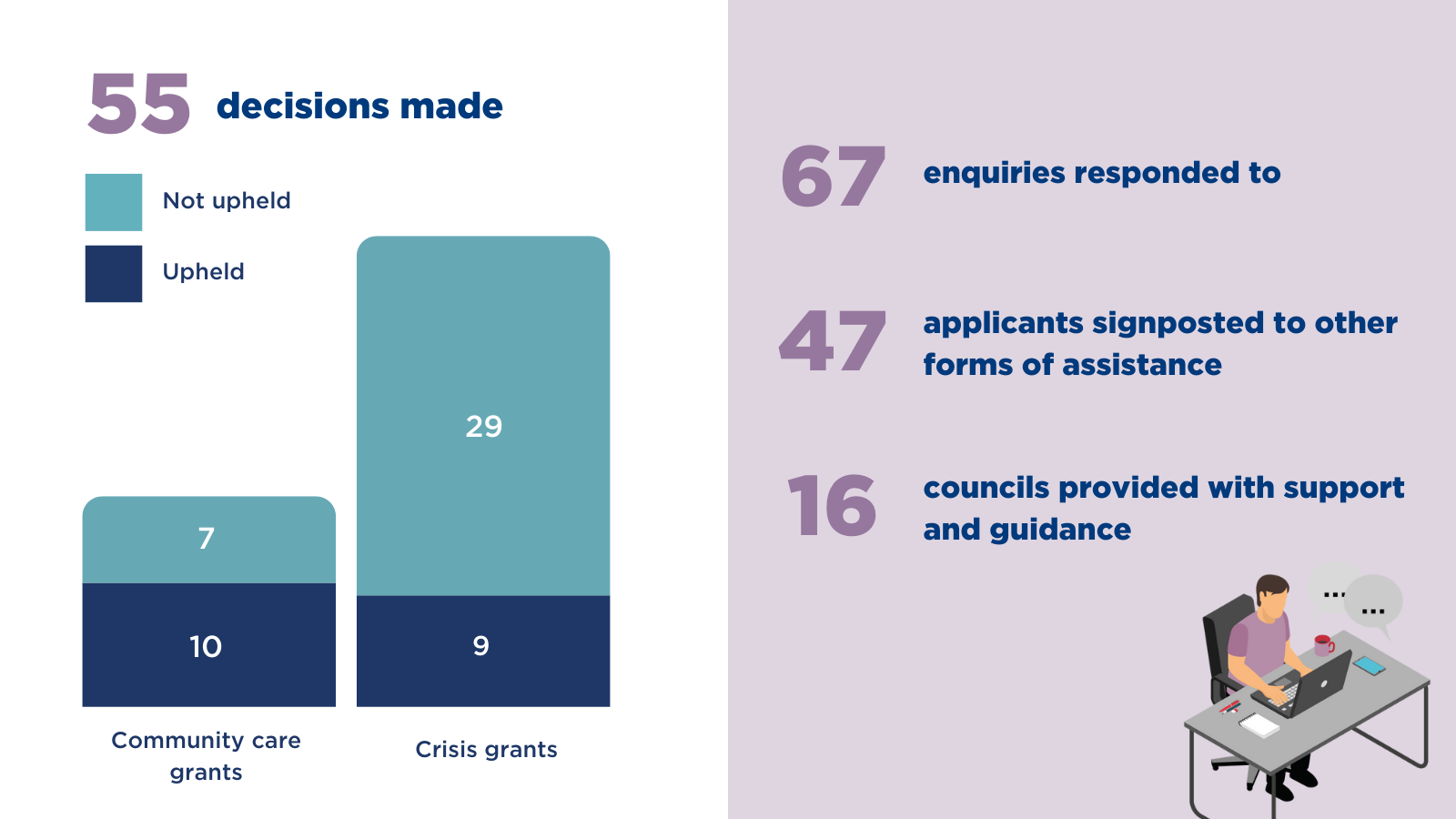
During November we responded to
- 67 enquiries
- made 55 decisions
- 17 community care grants
- 38 crisis grants
- upheld 10 (59%) of community care grants and 9 (24%) of crisis grants
- signposted an additional 47 applicants to other sources of assistance. The majority of these (38) were calling us instead of their local council in error
- received 16 enquiries were from councils seeking advice on the guidance.
Stakeholder engagement
We wrote to one council to escalate a recurring issue under level one of our Support and Intervention Policy (SIP). This concerned not making sufficient enquiries and failing to look into conflicting information prior to making decisions.
We contacted two local authorities to highlight that decision timescales were not being met. One of these was escalated to level two of our SIP and the other was escalated to level four.
Spotlight on the impact of Scottish Welfare Fund High Most Compelling priority rating
On 28 November 2024, the Scottish Government announced £20 million of extra funding for local authorities to deliver and administer the Scottish Welfare Fund.
This extra funding will reduce the risk of Local Authorities needing to apply the High Most Compelling (HMC) priority rating, which limits funding to individuals in severe crisis.
Our report about the HMC priority rating, published last month, highlights our concerns about the sustainability of the fund and the disproportionate impact on some applicants.
We hosted a panel discussion on 4 December 2024 with Scottish Government and Glasgow City Council to discuss the report from different perspectives. You can watch it on our website in case you didn’t manage to see it first time round.
Thank you to Munwar Hussain, Scottish Welfare Fund Manager at the Scottish Government, and Janice Timoney, Head of Customer and Business Services at Glasgow City Council for joining us and sharing their insight and views!
Read the report | Watch the webinar
Case studies
Resolution offered by the council
C applied for a community care grant to set up their tenancy after fleeing their previous home. The council referred C’s application for removal costs to their Discretionary Housing Payment (DHP) team who awarded £310. They declined the remainder of the application as they assessed that the items requested would not help sustain the current tenancy or establish the new tenancy.
We reviewed the council's file and corresponded with C. C explained that the DHP payment had not been enough to cover the removals. This meant that they had to abandon some of their belongings at their old tenancy including two beds and a washing machine. We discussed the issue with the council, and they offered to make a cash award to C of £481 for the beds and washing machine. This was on the basis that C had incurred detriment. We explained the council’s offer to C, who accepted this as a resolution to the issue.
Feedback for the council
- The council did not make sufficient follow-up enquiries at first tier review based on the information provided on the application about the applicant’s circumstances.
We asked the organisation to provide us with confirmation that the award was made within one week.
You can find more case studies in the searchable directory on our website.